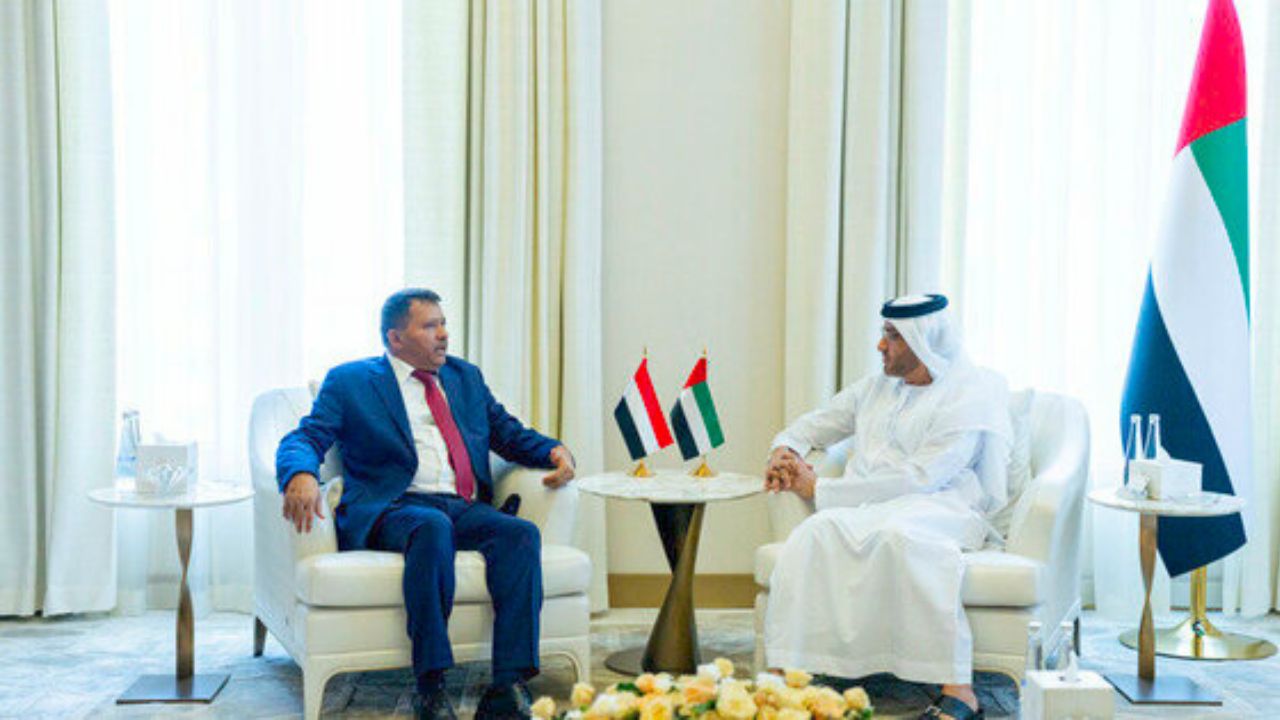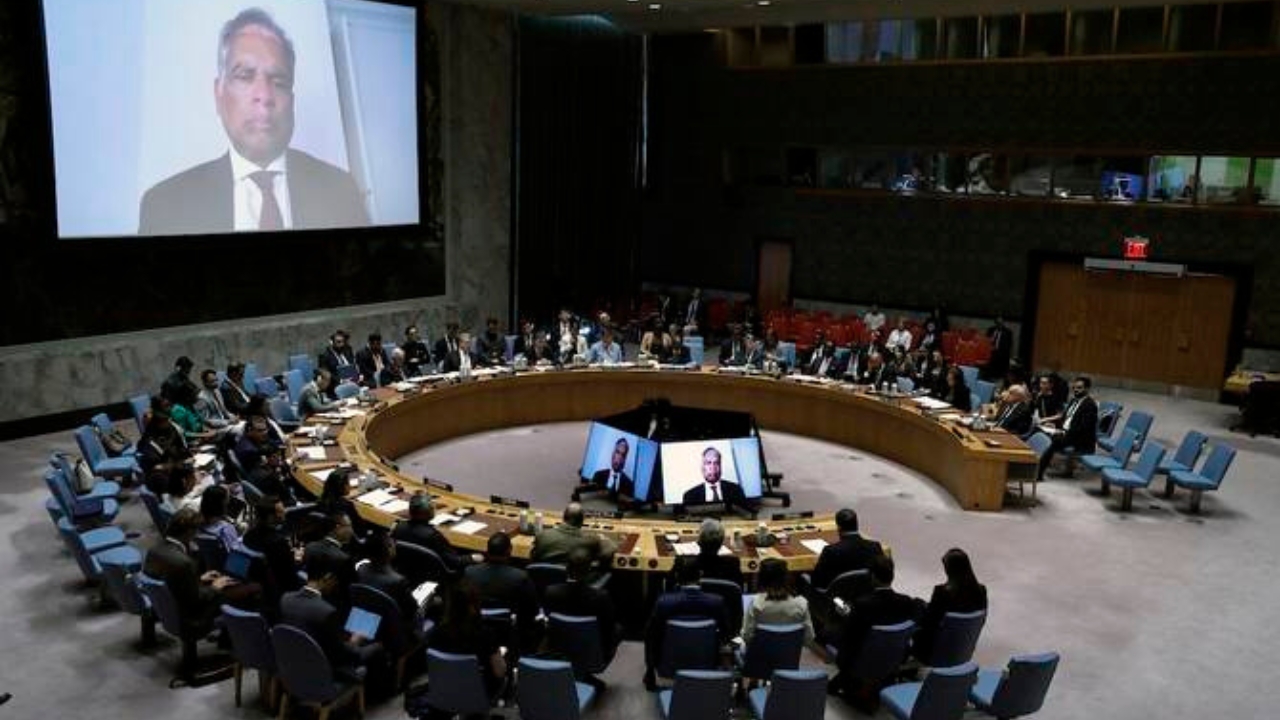
UAE and Yemen Strengthen Legal and Judicial Cooper
UAE and Yemen attorney generals met in Abu Dhabi to strengthen legal ties, enhance public prosecutio

Photo:AFP
The United Nations General Assembly is preparing for one of the most significant votes in recent years: whether to formally recognize a Palestinian state without Hamas. This decision could reshape the Middle East’s political landscape, influence future peace talks, and redefine how the world views the Palestinian struggle for recognition. The question before the UN is not only about statehood, but also about legitimacy, governance, and the prospects of peace.
The Long Road to Palestinian Statehood
The Palestinian demand for statehood has existed for decades, rooted in a struggle for land, sovereignty, and international recognition. Since the 1948 Arab–Israeli war, Palestinians have sought an independent homeland in the West Bank, Gaza, and East Jerusalem—areas Israel captured in the 1967 Six-Day War.
The Oslo Accords of the 1990s briefly raised hopes by laying out a pathway toward a two-state solution. Under this framework, the Palestinian Authority (PA) was established to govern parts of the West Bank and Gaza. However, with the rise of Hamas and years of conflict, the road to Palestinian independence stalled.
Today, the vote at the UN is not simply about Palestinian statehood—it is about what kind of Palestinian state should be recognized.
Why Hamas Matters in This Vote
Hamas, which controls Gaza, is considered a terrorist organization by Israel, the United States, the European Union, Canada, and several other countries. While it has grassroots political support among some Palestinians for its resistance against Israel, it is also responsible for violent attacks, rocket fire, and hostage-taking.
Israel has long warned that no peace process can work if Hamas is part of the Palestinian leadership. For Israel, recognizing a Palestinian state that includes Hamas means legitimizing violence against its own citizens.
The current proposal at the UN therefore centers on recognizing a Palestinian state under the Palestinian Authority, headquartered in Ramallah, while deliberately excluding Hamas from power structures. This would be the first time such a condition is formally attached to a push for Palestinian recognition.
Supporters and Opponents
Supporters of the resolution—many European and Arab states included—argue that a Hamas-free Palestinian state offers the best chance of reviving peace talks. They believe recognition will strengthen moderate Palestinian leaders and show that diplomacy, not militancy, leads to progress.
The United States has voiced conditional support, emphasizing that the only path toward a viable Palestinian state is through leadership committed to peace and coexistence with Israel. Washington views the resolution as a step to weaken Hamas’s hold on Gaza, while boosting the Palestinian Authority’s legitimacy on the world stage.
On the other side, critics say the move risks dividing Palestinians further. Hamas leaders have already denounced the proposal as an attempt to delegitimize their role in resistance. Some countries in the Global South—such as South Africa and others—express concern that excluding Hamas could undermine Palestinian unity rather than fostering reconciliation.
Israel’s Position
For Israel, the vote is a test of global resolve against armed militancy. The Israeli government has urged member states to firmly reject any recognition that involves Hamas. Israeli leaders argue that any Palestinian state must reject violence, formally recognize Israel’s right to exist, and accept previous peace agreements.
From Israel’s perspective, the vote is not about denying Palestinians their right to independence, but about ensuring that Palestinians have leadership that accepts the principles of peace and mutual respect.
The Palestinian Debate
Among Palestinians themselves, the issue is deeply divisive. The Palestinian Authority, led by President Mahmoud Abbas and based in the West Bank, has cautiously welcomed the resolution, seeing it as a rare chance to gain wider international legitimacy. For years, the PA has struggled to secure authority, often overshadowed by Hamas’s de facto control of Gaza.
Hamas, however, has condemned the resolution outright. Leaders in Gaza claim it is an external attempt to engineer Palestinian politics, stripping them of legitimacy despite their broad base of support in certain areas. Hamas argues that real unity is essential to fight Israeli occupation, and excluding them will leave any Palestinian state divided and weak.
This struggle highlights the central obstacle: Can a Palestinian state exist in reality if it is split between two rival powers?
What the Vote Means
The upcoming UN vote will not create a Palestinian state overnight. General Assembly resolutions do not have the power to legally establish statehood. However, such recognition carries immense symbolic and political weight. If passed, the resolution would add momentum to global recognition of Palestine, shape diplomatic alliances, and create pressure on Israel to engage in renewed peace talks.
Equally, the vote would set conditions by drawing a firm line between Palestinian leadership that pursues international diplomacy and groups like Hamas that are seen as reliant on violence.
Possible Scenarios After the Vote
If the Resolution Passes:
The Palestinian Authority would gain a stronger international standing, bolstered by recognition from the UN.
Israel would face greater diplomatic pressure to negotiate with the PA.
Hamas could be further isolated internationally, though it may respond with defiance and increased unrest in Gaza.
If the Resolution Fails:
Palestinian hopes for recognition would suffer another major setback.
Hamas could use the failure to claim that the world will never side with Palestinians, justifying its militant approach.
Israel would celebrate the outcome as proof that the world rejects Hamas-driven politics, but the stalemate would remain.
The Bigger Picture
This UN debate is part of a larger struggle: the quest for a lasting two-state solution. Decades of negotiations, wars, intifadas, and failed peace talks have left both Israelis and Palestinians disillusioned. For Palestinians, recognition means dignity and statehood. For Israelis, security and legitimacy are non-negotiable.
The resolution on a Hamas-free Palestinian state tries to bridge this gap by offering recognition without empowering militancy. Whether it succeeds will depend not just on the result of the vote, but on how Palestinians themselves respond in the aftermath.